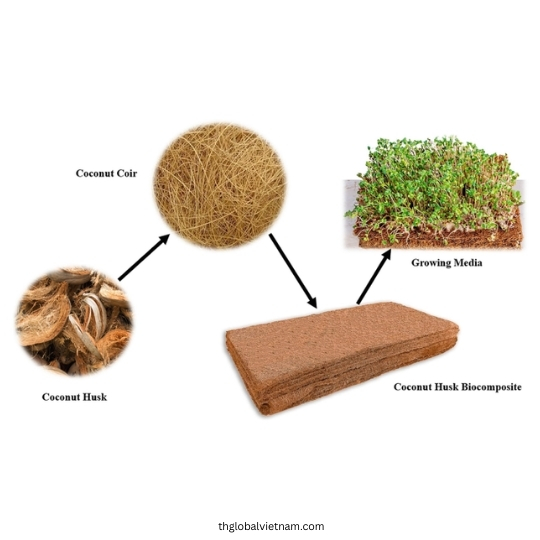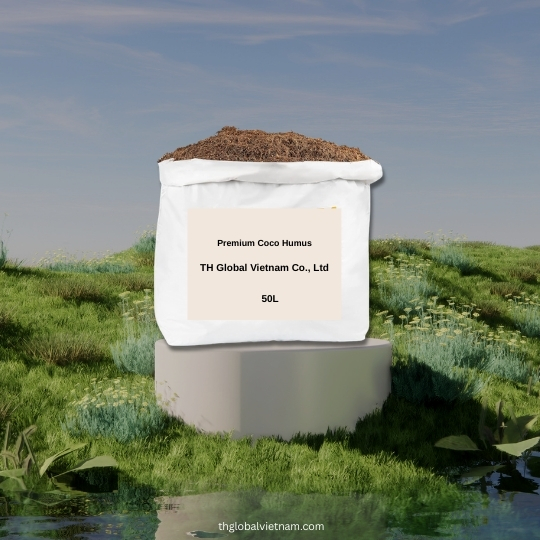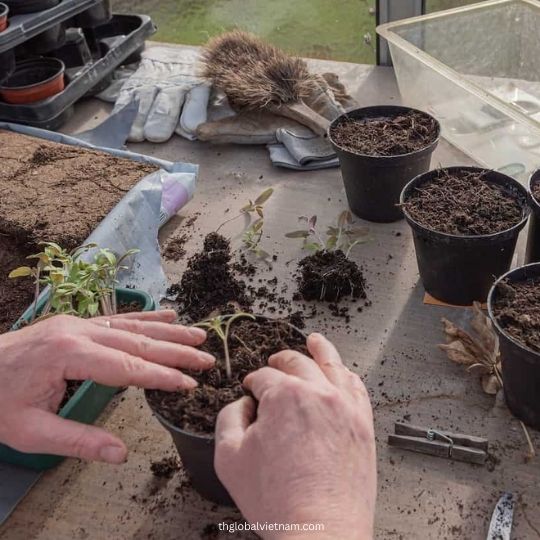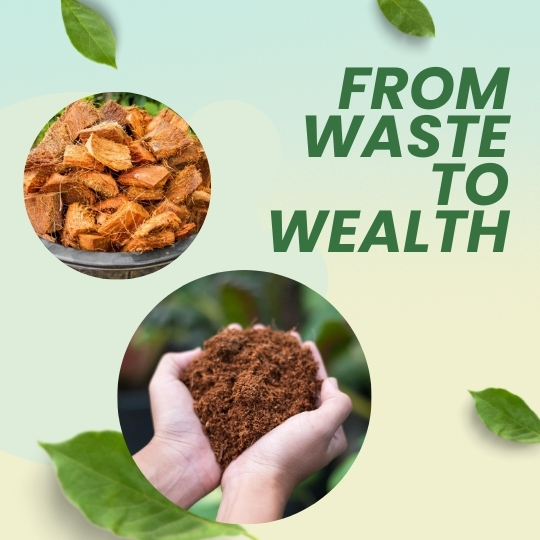The future of farming depends on how well we manage our resources. With growing concerns about climate change, soil degradation, and waste management, circular agriculture has emerged as a powerful solution. Instead of treating waste as a burden, circular farming turns it into a valuable resource—creating a closed-loop system where nothing goes to waste. One of the best examples of this principle in action is Sustainable Coco Humus. Produced from coconut processing by-products, Coco Humus is transforming agricultural waste into an eco-friendly soil enhancer that improves yields while protecting the planet.
In this article, we’ll explore how Coco Humus supports circular agriculture, its benefits for farmers and importers, and why it’s becoming a preferred choice in global markets.
What Is Coco Humus?
Coco Humus is an organic soil amendment made by composting coconut husk fibers (coir). Once considered a low-value waste product, these husks are now processed into a fine, nutrient-rich medium that enhances soil health and plant productivity.
Unlike chemical fertilizers, Sustainable Coco Humus improves the soil’s physical structure and long-term fertility. It holds water, retains nutrients, and provides aeration—all essential for healthy root systems.
At TH Global Vietnam, we specialize in producing premium-quality Coco Humus designed for agriculture, greenhouses, nurseries, and landscaping projects worldwide.

Circular Agriculture: Closing the Loop with Coco Humus
Circular agriculture aims to minimize waste and maximize efficiency by reusing agricultural by-products. Instead of discarding or burning coconut husks, they are turned into Sustainable Coco Humus—a product that goes back into the soil to regenerate fertility.
How it works in practice:
- Coconuts are harvested → husks removed
- Husks are composted → transformed into humus
- Humus is applied to soil → improves crop yields
- Farmers grow healthier crops → continues the cycle
According to FAO’s circular economy principles, reusing organic by-products is essential to building resilient food systems. Coco Humus is a practical example of these principles in action.
Environmental Benefits of Sustainable Coco Humus
Reduces Agricultural Waste
Millions of tons of coconut husks are discarded annually. Converting them into Coco Humus keeps waste out of landfills and reduces open burning.
Cuts Greenhouse Gas Emissions
By recycling organic matter, Coco Humus production helps reduce methane and CO₂ emissions associated with untreated waste.
Improves Soil Health Naturally
Coco Humus enhances aeration, water retention, and microbial activity—creating resilient soils that need fewer chemical inputs.
Supports Water Conservation
Its ability to retain water makes it ideal for drought-prone regions, lowering irrigation demands.

Economic Value: From Waste to Wealth
Coco Humus doesn’t just support the environment—it creates economic opportunities.
- For Farmers: Lower fertilizer and irrigation costs, higher yields, and better-quality crops.
- For Importers/Distributors: A high-demand, eco-friendly product with strong market value in Europe, the Middle East, and Asia.
- For Local Communities: Waste-to-wealth processing creates jobs and new revenue streams.
Learn more about why importers are switching to Coco Humus.
Crops That Benefit Most from Sustainable Coco Humus
- Leafy greens (lettuce, spinach, kale) – thrive with steady hydration.
- Fruit crops (tomatoes, strawberries) – bigger, sweeter produce.
- Root vegetables (carrots, radishes, beets) – straighter roots and fewer deformities.
- Flowers & ornamentals – brighter blooms and longer vase life.
See our full guide: Top Crops That Thrive with Coco Humus.

Best Practices for Using Coco Humus
- Mix with field soil at 30–50% ratio for long-term soil improvement.
- Use as mulch to conserve moisture and suppress weeds.
- Combine with compost for additional nutrient content.
- Apply in greenhouses as a sterile, sustainable soil amendment.
From coconut waste to fertile soil—Sustainable Coco Humus is a perfect example of circular agriculture in action. It transforms agricultural by-products into a powerful tool for healthier crops, stronger soils, and greener farming practices.
Whether you’re a farmer seeking better yields or an importer looking for eco-friendly products, Coco Humus offers both environmental and economic benefits.
Ready to embrace circular agriculture? Contact TH Global Vietnam for premium Coco Humus solutions.

